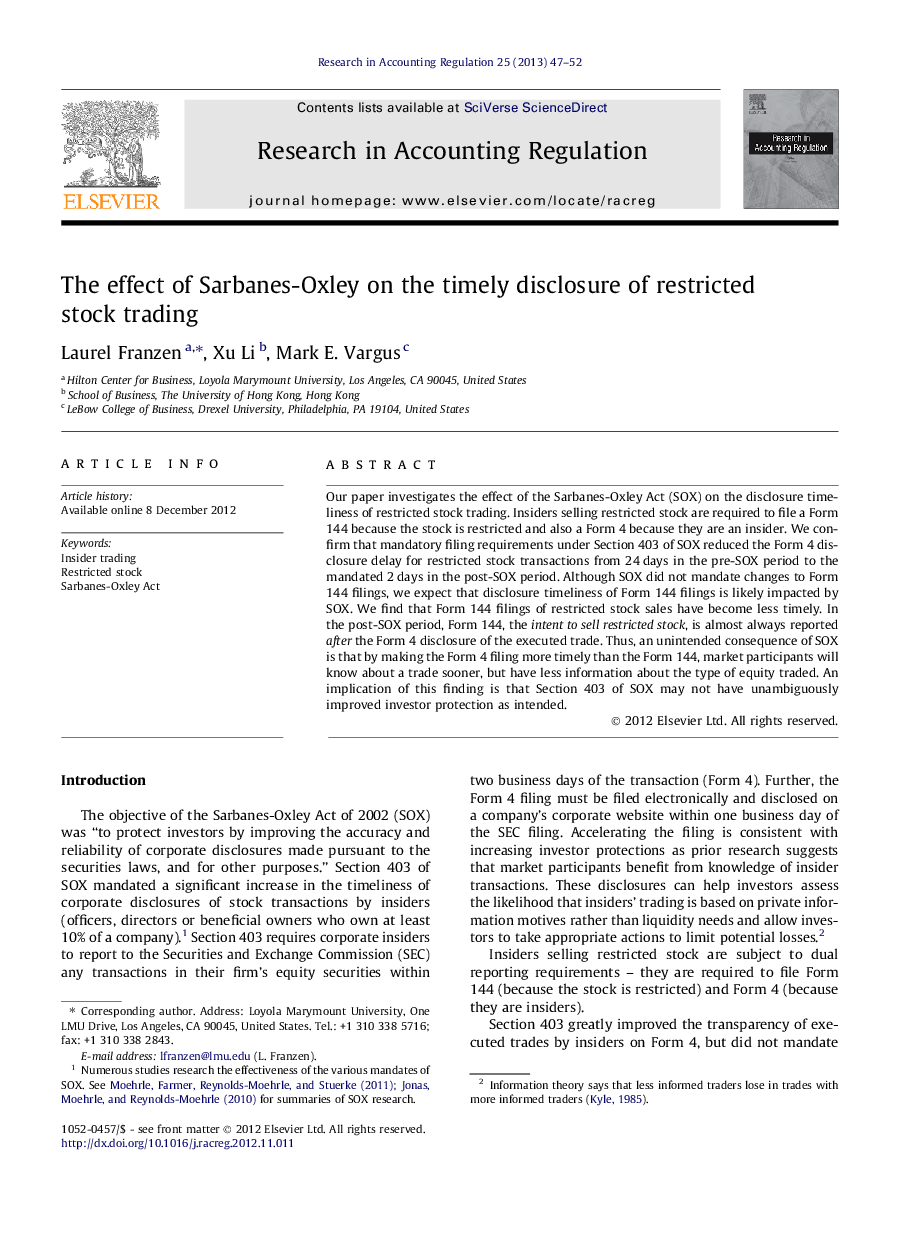| Article ID | Journal | Published Year | Pages | File Type |
|---|---|---|---|---|
| 1006632 | Research in Accounting Regulation | 2013 | 6 Pages |
Our paper investigates the effect of the Sarbanes-Oxley Act (SOX) on the disclosure timeliness of restricted stock trading. Insiders selling restricted stock are required to file a Form 144 because the stock is restricted and also a Form 4 because they are an insider. We confirm that mandatory filing requirements under Section 403 of SOX reduced the Form 4 disclosure delay for restricted stock transactions from 24 days in the pre-SOX period to the mandated 2 days in the post-SOX period. Although SOX did not mandate changes to Form 144 filings, we expect that disclosure timeliness of Form 144 filings is likely impacted by SOX. We find that Form 144 filings of restricted stock sales have become less timely. In the post-SOX period, Form 144, the intent to sell restricted stock, is almost always reported after the Form 4 disclosure of the executed trade. Thus, an unintended consequence of SOX is that by making the Form 4 filing more timely than the Form 144, market participants will know about a trade sooner, but have less information about the type of equity traded. An implication of this finding is that Section 403 of SOX may not have unambiguously improved investor protection as intended.
